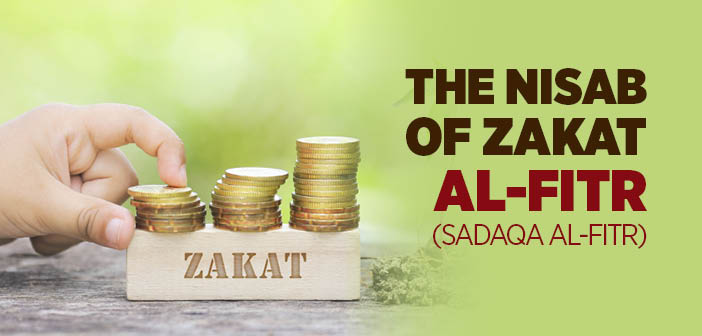What is the nisab of zakat? What is the current nisab of zakat?
The nisab of this type of zakat is to have sustenance enough to feed oneself and all his family members on the Festival Day after spending whatever he is accustomed to at that time. In other words, one is obliged to pay the fast-breaking zakat if he has enough for himself and his family on the Day of Fast breaking over and above the customary items prepared and consumed for the Festival Day, such as suitable clothing for himself and his dependents, a suitable dwelling and servants, as well as utensils and books even if he has numerous items of a single type, as well as mounts or other modes of transport, which are suitable for himself and his dependents. Sadaqa al-fitr is an obligation not based on the property but rather based on people.
Sanity and adulthood are not conditions in zakat al-fitr. It is obligatory for every free Muslim who is capable of carrying out the act. Every Muslim who has the necessary conditions must pay this charity in full and in its proper time. According to Abdullah b. ‘Umar (r.a.), it is narrated that, “Allah’s Messenger (pbuh) enjoined the payment of one Sa’ of dates or one Sa’ of barley as Zakat al-Fitr on every Muslim slave or free, male or female, young or old, and he ordered that it be paid before the people went out to offer the festival prayer. (One Sa’ = 3 Kilograms approx.).”[1]
Zakat al-fitr is obligatory even if someone is in debt, and the person concerned must pay it on behalf of himself and those for whose financial support he is responsible at the time when it is due.
[1] Al-Bukhari, Zakat, 70, 71, 73; Muslim, Zakat. 13
Source: Fiqh1 (According To The Shafi’i School Of Islamic Law), Erkam Publications





